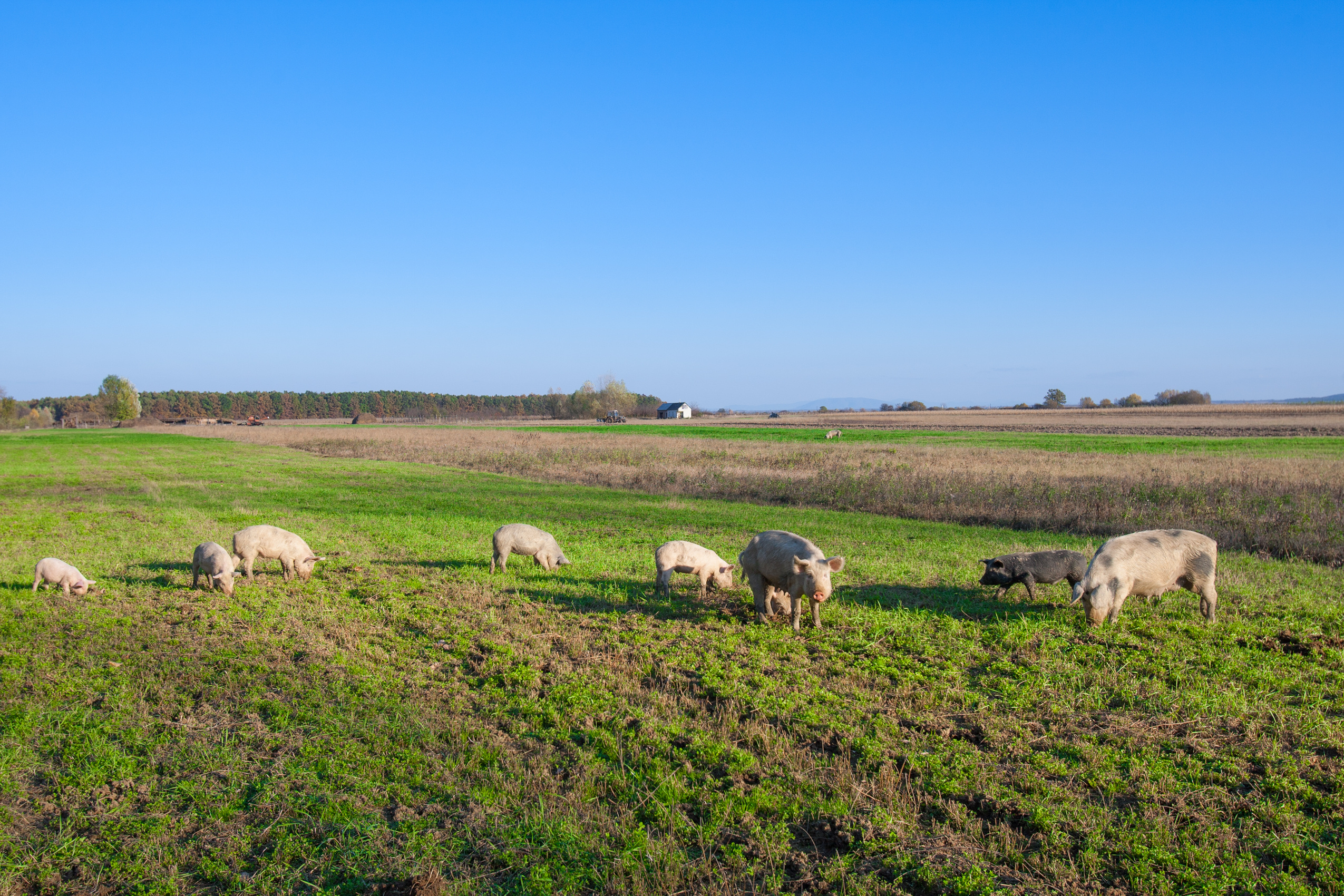Reposted from: https://www.washingtontimes.com/news/2024/sep/9/will-states-rights-lose-out-to-meat-industry/
September 9, 2024
In a glaring example of federal overreach and an affront to states’ rights — by extension, a brush-off to American farmers and consumers — the House farm bill making its way through Congress contains language that would revoke states’ ability to set any standards whatsoever regarding meat products.
The reason? The meat industry and, in some cases, their foreign masters in China are out for revenge after California voters passed Proposition 12 and Massachusetts voters passed its precursor, Question 3 — animal protection measures that show a modicum of mercy over the lives of farm animals, which is a mighty inconvenience to the global meat production industry.
California and Massachusetts voters decided, among other things, that pork sold in their state shouldn’t involve the cruel practice of confining mother pigs for most of their lives in tiny “gestation crates,” unable to ever turn around. As one Pennsylvania pork farmer who recently swore off using crates recently wrote, “Any group of people who understand how the gestation crate works would vote it out given the chance.” California and Massachusetts voters did just that.
If the farm bill is passed as written, these state animal cruelty laws would be wiped out, along with the tens of millions of votes that passed them into law. As Chinese media reported, eliminating these laws and preventing new ones from passing will undoubtedly make it easier for China to further infiltrate American agriculture, particularly since Chinese interests have already bought Smithfield, the largest pork company in the U.S.
The bill’s language is crystal clear: “No State or subdivision thereof may enact or enforce, directly or indirectly, as a condition for sale or consumption, any condition or standard of production on products derived from covered livestock not physically raised in such State or subdivision that is in addition to, or different from, the conditions or standards of production in the State in which the production occurs” [HR8467 (Sec. 12007 (c)].
How did this happen? As previously mentioned, big producers — several of which are owned or controlled by foreign conglomerates — didn’t like states’ voters having the ability to pass laws creating minimum humane standards (which I support and have written about before).
In a recent poll, 72% of Republicans agreed that states should be able to create their own laws regarding agricultural products sold in their state. This makes sense as more foreign entities attempt to circumvent state laws.
Lest you think anyone is overblowing the China-meat industry connection and is actively in cahoots on this, I direct you to one of many quotes from their state media on the subject: “China is still the world’s largest pork producer, and the passage of the Hinson/Marshall Act [the basis of the farm bill language wiping out Prop 12 and Question 3] will directly benefit pork producers in China, eliminating the need to deal with the burden and complexity of different state laws, thereby occupying a larger market share. For China’s pork industry, the EATS Act will further strengthen China’s food safety and bring many benefits to China’s middle class” (China Weekly, July 2023).
The poll cited earlier asked Americans whether they agree that states should be able to “set their own standards for goods sold in their state.” Unsurprisingly, 69% of all voters and 78% of Republicans agreed. The meat industry and its allies, foreign and domestic, are betting we aren’t paying attention; they may be right. It would be nice to hear one of our presidential candidates address this, but alas.
The meat industry challenged the California law in court but lost. The Supreme Court upheld the right of states to set their own standards. Undeterred, the industry then went to Congress with a determination to undermine California voters and the court itself the old-fashioned way — with its wallet. As a result, we are looking at a whole different ballgame.
Thankfully, some of our more constitutionally astute politicians are warning about the danger of moves like the one being made in the farm bill draft. Sid Miller, the Texas commissioner of agriculture, wrote in a recent op-ed: “Our states must be able to maintain their constitutional authority to pass agriculture laws, including those affecting novel diseases, and DC should never ride roughshod over states’ rights to do so.” More, please.
While we may disagree with what the voters in a specific state choose to do (I am from California, and I regularly take issue with things my home state’s voters do nowadays), it is un-American to allow states’ rights to be further eroded and hand more power over to the federal government in spite — which is what’s happening with our wayward farm bill in its current draft form.
May smarter heads in Congress open their eyes, speak up and see to it that this obscene provision is stripped from the farm bill, scoring one for the Constitution and showing the (foreign) meat industry the door.
Christian Josi is a veteran public affairs and media relations professional as well as a globe-trotting singer. He writes often for a variety of publications.
